This year Germany hosts the periodic regional soccer tournament. I enjoy the sideshow–merchandising tie-ins, viral visitor moments, Public Viewings (that’s the German word for “we put a TV in the Biergarten”), infrastructure failures–but I don’t enjoy watching soccer games. Kann man, muss nicht.
When Mr Radish asked me how I was going to fill all my free time while he’s busy drinking beer and watching three soccer games a day, I joked back that I was going to drink beer and watch movies. And then I thought–why not a Euro ’24 Film Fest, with at least one movie from each participating nation? I can finally clear some random Scandi junk out of my Netflix list, and maybe arte will have some tie-ins…
The euphoria lasted until I printed out the tournament schedule, and realized Scandis don’t play soccer as well as Albanians and Georgians do. The “unique experience cofinanced by the European Union since 2015 to foster EU integration through culture” completely ignores that part of Europe. Tja.
But y’all know me. I am fully committed to my bad ideas.
There are no rules for this challenge regarding genre or era; the only requirement is that the audio or subtitles be in English or German.
Scotland: Chariots of Fire (1981)
Cable (Warner Film), original English
Based on the true story of two men of faith (one Jew, one Christian) who represented Great Britain in the 1924 Olympics in Paris, the anachronistic soundtrack by Vangelis should be familiar to anyone who has seen sports on TV, or chickens on YouTube.
The Scottish runner Eric Liddell is forced to choose between running and his work as a missionary, and ultimately decides that using the speed God gave him is good (after the Games, he returns to the mission in China). He also makes the controversial decision to drop out of an event because the qualifying heat is scheduled for a Sunday, and even the Prince of Wales cannot convince him to give up his belief that the Lord’s Day is for one Lord only. His dialect was hard to understand, but I found him very sympathetic.
The Jewish runner Harold Abrahams attends Cambridge, thanks to his immigrant father’s hard work and success as a financier, but can’t crack the British class system’s disdain. Running is how he works out his frustrations. I had a harder time understanding him–but at the opening credits include “Executive Producer Dodi Fayed”, and based on my hate-watch of the last two seasons of The Crown, I think it may have been the same story: a wealthy Anglophile immigrant non-Christian expects his son to be embraced by the English, who aren’t really interested.
I found the electronic soundtrack a bit jarring, but the action scenes were well-filmed, the sets and costumes were good–plain, but beautiful in their austereness. A very British film, but I’m filing it under Scotland to honor Liddell.
(I don’t understand how Scotland gets to field a team and Bavaria doesn’t. The Scots have been great guests in Munich, wearing their Tracht with pride and enjoying the beer.)
Hungary: Körhinta (Merry-Go-Round) (1956)
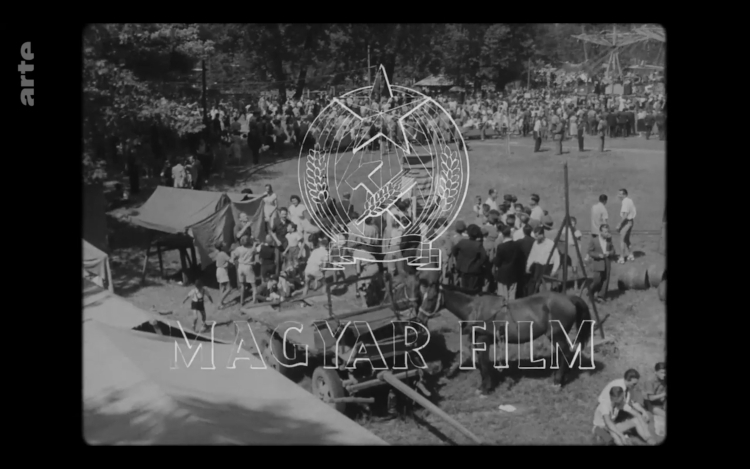
arte Mediathek, Hungarian with English subtitles
From arte’s revolving collection of “masterpieces of European cinema“, a classic romance. Mari, a land-owning farmer’s daughter, is in love with Máté, a landless farm worker employed by the local farm cooperative. “Land marries land” sez Father, and sells Mari off to a lecherous old neighboring landowner. “But I love Máté,” sez Mari. “This is always the lot of women,” sez Mother, who is already elderly and worn-out at the ripe old age of “not yet forty.”
The action starts at a fair, very much like the Freisinger Volksfest, where Mari and Máté meet up secretly and go flying on the chain-swing carousel, and the director conveys the sense of freedom and falling in love with a long montage, accompanied by bouncy carnival music. Check it out. I was able to relate to the story and the characters, even though I am not familiar with Hungarian peasant culture or traditions.
Despite being filmed in the time of a Soviet-aligned dictatorship, there is very little propaganda. It is purely a romance/coming of age film, full of singing and dancing, beauty and longing, and ultimately joy. It starts out fun, and the tension ratchets up until the last five minutes. The IMDB tells me the director was “influenced by French poetic realism” and I don’t know what that means, but he used music and tight close-up shots of dancers, animals, and objects to move the story along instead of straight-up dialog and action.
I very much enjoyed this one.
Deutschland: Der Golem, wie er in die Welt kam (1920)
arte, original German cards, original score
I had something else in mind, then this popped up randomly after midnight with no re-airing or Mediathek availability so I had to stay up all night to watch it. And I am so glad I did. This is one of the most visually interesting silent films I have ever seen. Director Paul Wegener, who also plays the Golem, dude was massive, pulled out all the tricks and effects and design principles. Even the creepy occult scenes were beautifully framed, and the special effects, probably cutting-edge at the time, are ageless.
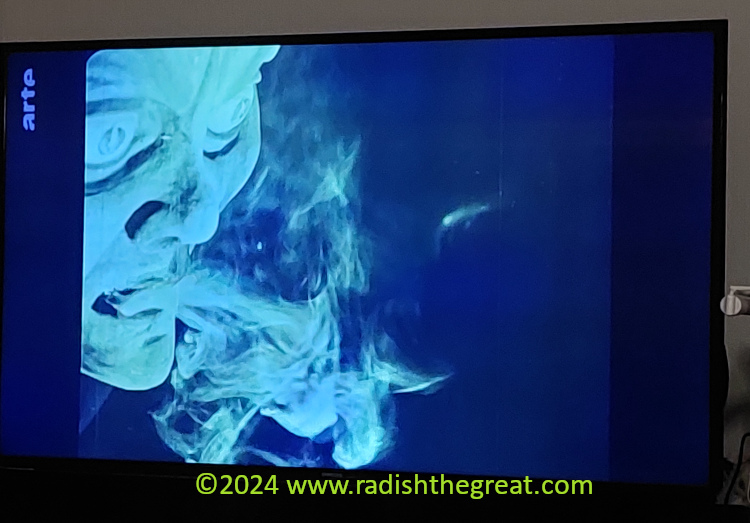
This German Expressionist film is ultimately about the tensions between Jews and Christians in 16th century Prague–the Kaiser’s decree of expulsion of the Jews prompts the astronomer/rabbi (dare I say alchemist?) to create the Golem of stone and clay as a protector of the Jews, already walled off in a ghetto. There’s a lot to ponder there, especially since we know how the next 25 years are going to play out in Germany and Eastern Europe–and we see it playing out now again in the US and Western Europe. The end was satisfying, it was a good place to end the story, but also bittersweet.
My main negative critique point is the title cards. This was a 2021 restoration from the Filmmuseum München, and they kept the original font, where S, F, and K all look nearly alike. I struggled to read them.
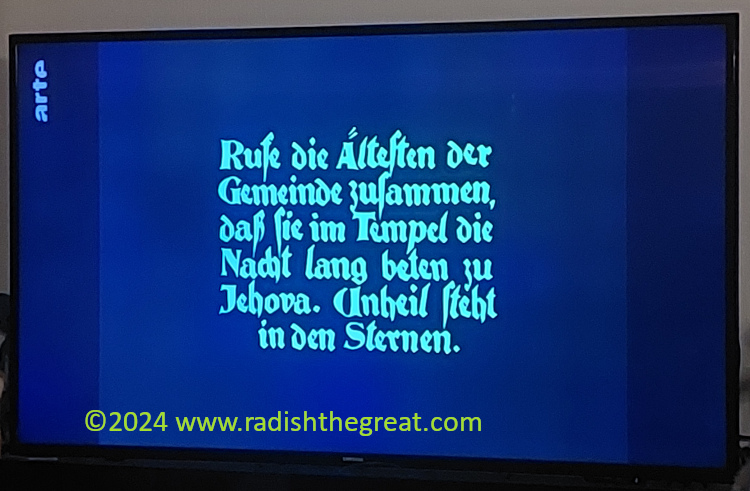
Another design choice that I couldn’t get enough of: There wasn’t a right angle in any of the buildings in the ghetto. Look at that interior. Sometimes even the action wasn’t in a square; many scenes were framed in organic shapes:
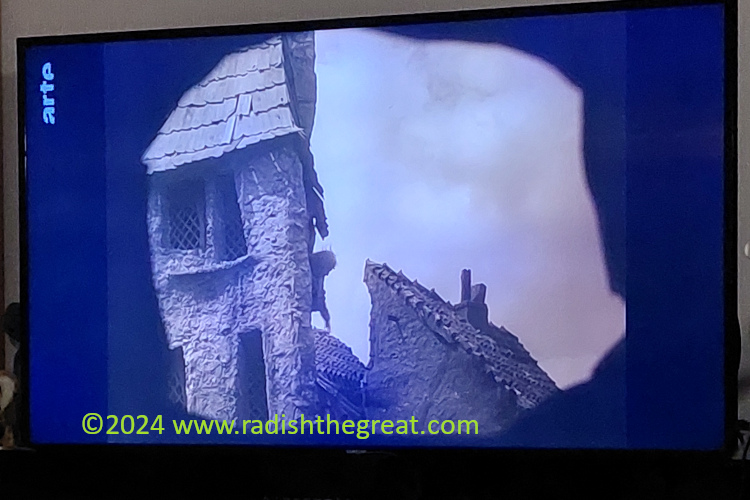
TL;DR: I really liked this one.
Switzerland: Die Nachbarn von oben (The neighbors from upstairs) (2023)
Netflix, Deutsch
I tried the original “Swiss German” and lasted about five minutes. That can’t possibly be a real language…
Anyway, this was a remake of a Spanish film about a staid middle-aged couple who has grown apart–he’s a grump-ass piano instructor at a conservatory, she’s a mousy children’s book illustrator–and their relationship. She invites the slightly younger new upstairs neighbors–he’s a hot firefighter, she’s a psychologist who wrote a book about the benefits of divorce–over for cocktails, so they can complain about the disruptively loud sex going on up there. Turns out they’re swingers, and they accepted the invitation because they want to invite the downstairs neighbors to join the fun.
The next 70 minutes everyone just yells at each other.
Why did I decide to torture myself with this project? Aaaargh.
All the action takes place in one apartment, and all the walls, furnishings, accent pieces, and clothes were the specific shades of blue and gold used in every single European film made since 2020. I don’t know why every single director/editor chooses them, I don’t know if this is a result of cheap digital post-production or if there’s just four people in Europe who know how to use the digital tool and they just love these colors, or what’s going on, but it’s so obvious and noticeable and I hate it.
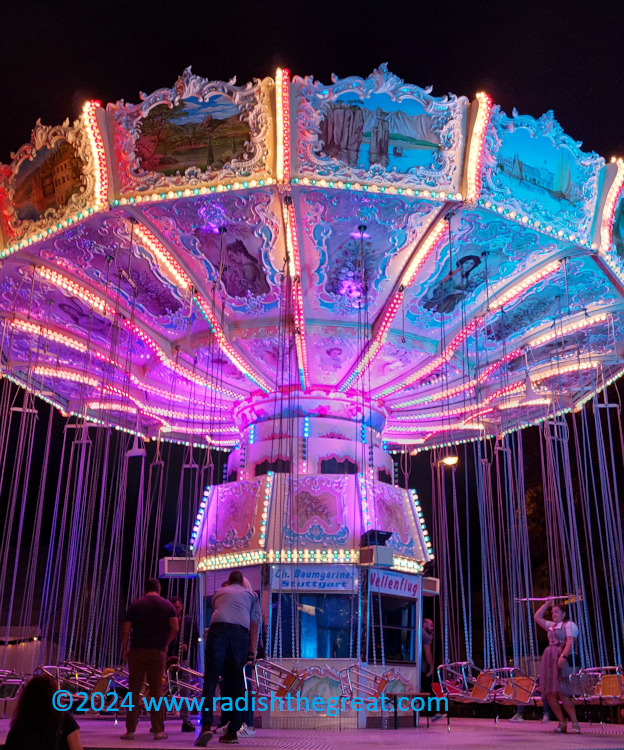

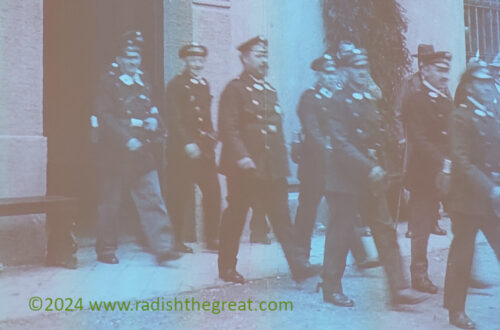
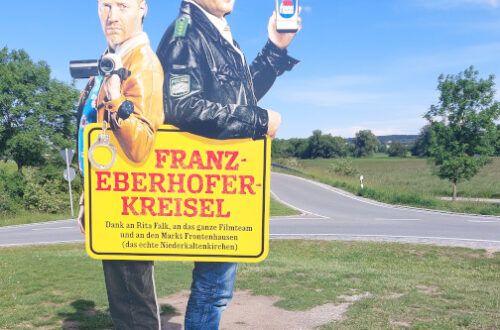
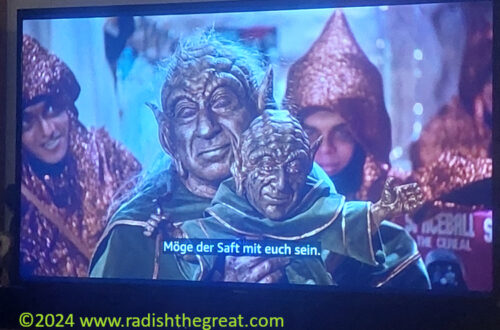
5 Comments on “Euro ’24 Filmfest: Group A”